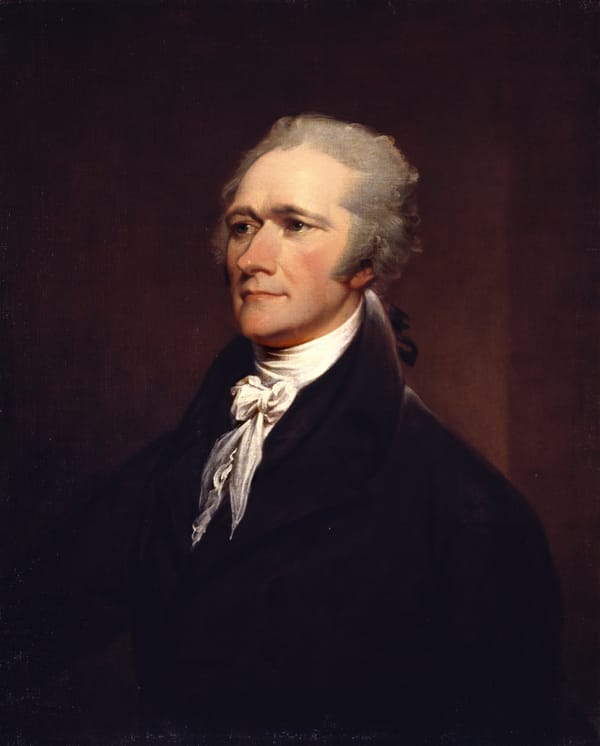Chevron Wasn't That Important. Loper Bright Is Really Bad, Though
I can't believe I'm the one who has to say this.
So, last week the Supreme Court formally overruled Chevron v. National Resources Defense Council, one of the landmarks of administrative law, in a case called Loper Bright Enterprises v. Raimondo. People are generally freaking out, and – this is the part I can't believe I'm the one saying – I really wish they would remember their legal realism a bit more. Chevron itself simply wasn't very important! It didn't actually force judges to uphold regulations, and Loper Bright won't require judges to overrule them. What it will do, though, is serve as a permission structure for right-wing judges who already want to tear apart the regulatory state.
First of all, what is Chevron? The case is from 1984, which is a real tell: that was the height of the Reagan Administration's fight against the regulatory state. The Reagan EPA had adopted a new rule effectively weakening certain provisions of the Clean Air Act, and the D.C. Circuit had invalidated the new rule, reinstating the stronger version. Chevron – yes, that Chevron, the oil company – intervened, and the Supreme Court overruled the D.C. Circuit. You read that right: Chevron itself was on the side of the anti-regulatory zealots in the Reagan Administration!
Justice Stevens would later say that he didn't really conceive of the Chevron decision as any kind of landmark or milestone. It was more of a common-sense thing: in technical matters, where the agencies have special competence and the courts don't, you might as well go with what the agency says as long as it's basically reasonable. But as these things tend to do, it took on a life of its own. Over the following forty years, the courts formalized Chevron into a "step one" (was the statute ambiguous?) and a "step two" (was the agency's construction within the scope of the ambiguity?). Eventually they even added a "step zero" (was the agency using its formal authority such that its pronouncements should be given this level of respect?).
Oh, and along the way we eventually replaced Stevens's common sense with a full-blown metaphysical theory of Chevron deference. Under that theory, to call it "deference" is a slight misnomer. The idea, rather, was that when Congress passes an ambiguous statute to be administered by an agency, it was implicitly delegating to that agency a portion of its legislative authority. That is to say, when statutory text could be read to say either A or B, the agency has been given the authority to choose between A and B, much as Congress itself might have done by writing a more precise statute.
This has never made much sense to me. Partly because I think this way of understanding "delegations" of "legislative" authority isn't altogether consistent with the scheme of the American government (I may expand on this at some point). But also just because, if I were a member of Congress and someone told me that, by writing a statute with somewhat less precision, I was making a delegation to a different branch of government, I would naturally think they meant the courts. Filling in those ambiguities is in fact what courts do all the time. Insofar as that's what Chevron was really about, then, I've never been particularly sure it was correct when decided – although arguably the fact that Congress didn't do anything to change it over the ensuing four decades means it became correct later on. For that reason I probably think Loper Bright was wrongly decided. Given the previous metaphysical understanding of Chevron, it can only really be read as saying that Congress may not delegate authority to agencies in the manner described. Yet another example of this Court smuggling in bits and pieces of the nondelegation doctrine without quite saying so out loud.
Never mind whether Chevron was correct, though: was it important? Contrary to most of the recent hue and cry, I don't really think so. One of the most actually valuable insights of legal realism, in my view (I have very mixed feelings about realism overall, something I very much hope to expand on here in due course), is that the express doctrinal formulations of legal tests and rules don't matter as much as appellate courts typically assume. In many cases, the decision-maker (whether a judge or a lay jury) is liable to have an instinctive read of the matter, and that instinct will inform how they apply the formal doctrinal rules. Changing the language of the doctrine, then, won't always affect decision-making behavior: it may only change what words the judges use in expressing their decisions.
It's always been deeply unclear what actual effect Chevron had. There are some empirical studies of note (see here, here, and here, for some examples), many of which find that courts are more likely to uphold regulations when they apply Chevron than when they do not. But that doesn't really speak to the question. Of course they're more likely to uphold when they apply Chevron! Because, a realist would say, they're more likely to apply Chevron when they are going to uphold. One of the ways you can justify striking a regulation down is by saying that Chevron doesn't apply to it. Or you can say that the statutory language isn't ambiguous. Conversely if you want to uphold a regulation, you just say that Chevron applies, the statute is ambiguous, and the agency's construction is reasonable.
Since the causal relationship is deeply muddled, it's just really really hard to figure out whether Chevron itself makes a real difference. The appropriate comparison isn't to cases in our reality where courts don't apply Chevron; it's to the alternate reality where Chevron never happened. And it's at least plausible that that universe wouldn't be any less friendly to the regulatory state than ours. It's not very difficult to uphold a regulation without Chevron, if you're so inclined: you just say that you find the agency's interpretation of the statute compelling on its own merits.
So, is Loper Bright really as much of a catastrophe for the regulatory state as it's cracked up to be? Well, no, but also maybe yes. If you're concerned about the doctrinal impact, I would encourage you to take heart. Like the song says, nothing matters but knowing nothing matters.[1] But if we're being realists, we might as well be wholehearted realists, and that's where things do get scary. Forget literally everything in the actual text of the opinion in Loper Bright. What was the decision? It was an announcement by six Justices of the Supreme Court that the regulatory state is not to be coddled. It was, you might say, a show of support for judges like Matthew Kacsmaryk who are already chomping at the bit to tear apart anything the Biden Administration might do: go wild! the Court says, and you can bet they will. Of course someone like Kacsmaryk himself would probably have done it anyway. But I have to expect that, on the margins, Loper Bright will act as a permission structure, letting right-wing judges indulge their political impulses a bit more freely than they otherwise would have. That's what's worth being afraid of, much more than the downfall of the Chevron doctrine as such.
"Dancing Through Life," from the musical Wicked, that is. I've always thought this a nice slogan for the sophisticated legal realist. ↩︎

